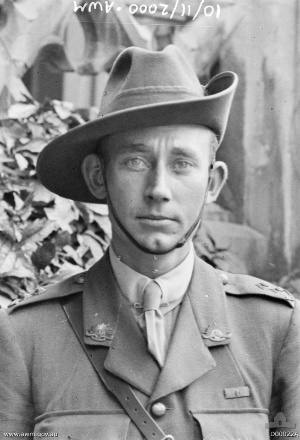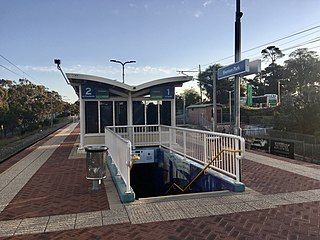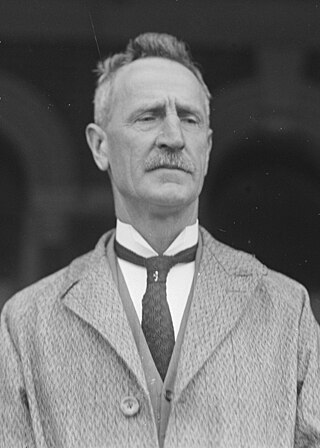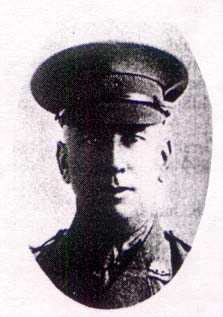
Henry Daglish was an Australian politician who was the sixth premier of Western Australia and the first from the Labor Party, serving from 10 August 1904 to 25 August 1905. Daglish was born in Ballarat, Victoria, and studied at the University of Melbourne. In 1882, he worked as a mechanical engineer but soon switched to working in the Victorian public service. He first stood for election in 1896 but failed to win the Victorian Legislative Assembly seat of Melbourne South. He then moved to Subiaco, Western Australia, where he found work as a chief clerk in the Western Australian Police Department. In 1900, Daglish was elected to the Subiaco Municipal Council and in April the following year, he was elected to the Western Australian Legislative Assembly as the member for the newly created seat of Subiaco, becoming one of six Labor members in the Western Australian Legislative Assembly. The party elected him as its whip, and he resigned from the Subiaco council on 1 May 1901. On 1 December 1902, Daglish was sworn in as mayor of Subiaco, having been elected the previous month.

Subiaco is an inner-western suburb of Perth, the capital of Western Australia. It is approximately 3 km (1.9 mi) west of Perth's central business district, in the City of Subiaco local government area. Historically a working-class suburb containing a mixture of industrial and commercial land uses, since the 1990s the area has been one of Australia's most celebrated urban redevelopment projects. It remains a predominantly low-rise, urban village neighbourhood centred around Subiaco train station and Rokeby Road.

Clifford William King Sadlier, VC was an Australian recipient of the Victoria Cross, the highest award for gallantry in the face of the enemy that can be awarded to British and Commonwealth forces.

Shenton Park railway station is a commuter railway station in Shenton Park, a suburb of Perth, Western Australia. The station is on the Fremantle and Airport lines, which are part of the Transperth public transport network. It has an island platform, accessed by a pedestrian underpass. The station is only partially accessible due to a steep ramp. Services on each line run every 12 minutes during peak hour and every 15 minutes outside peak hour and on weekends and public holidays. At night, trains are every half-hour or hour. The journey to Perth railway station is 6.0 kilometres (3.7 mi), and takes 9 minutes.

Daglish railway station is a suburban railway station on the boundary of Daglish and Subiaco, suburbs of Perth, Western Australia. Opened on 14 July 1924, the station was named after Henry Daglish, who had been a mayor of Subiaco, a member for the electoral district of Subiaco, and a premier of Western Australia in the 1900s. Daglish was a resident of Subiaco for 22 years before he died in 1920. The station consists of an island platform accessed by a pedestrian underpass. Two small buildings are on the platform which operated as a parcels office and ticket office until 1970. The station is only partially accessible due to a steep access ramp and lack of tactile paving.
Jolimont is a small western suburb of Perth, Western Australia, located within the City of Subiaco, although a small portion of the suburb is administered by the Town of Cambridge west of the CBD. The suburb is believed to be named after the Melbourne suburb of Jolimont, which was in turn named after "Jolimont" - the residence of Governor La Trobe. Its postcode is 6014.

Daglish is a small western suburb of Perth, the capital of Western Australia. It is approximately 4 kilometres (2.5 mi) west of the Perth central business district, and within the City of Subiaco local government area. It was named after Henry Daglish, who was the mayor of Subiaco, member for the electoral district of Subiaco and premier of Western Australia from 1904 to 1905. The Daglish railway station opened in 1924 in response to population growth in the neighbouring suburb of Subiaco. The following year, the Municipality of Subiaco bought the land west of the railway station to sell for housing. Development occurred over the following 20 years. The initial development next to the railway station used the garden suburb principles, with large lots and gardens, curved streets, and lots of green space. Today, the suburb has significant heritage value due to its uniform streetscape, with most original homes still standing. It has a population of 1,419 as of the 2016 Australian census.

The City of Perth is a local government area and body, within the Perth metropolitan area, which is the capital of Western Australia. The local government is commonly known as Perth City Council. The City covers the Perth city centre and surrounding suburbs. The City covers an area of 20.01 square kilometres (8 sq mi) and had an estimated population of 21,092 as at 30 June 2015. On 1 July 2016 the City expanded, absorbing 1,247 residents from the City of Subiaco.

The City of Subiaco is a local government area in Western Australia. It covers an area of approximately 7 km² in inner western metropolitan Perth and lies about 3 km west of the Perth CBD. The City includes the historically working-class suburb of Subiaco centred around Rokeby Road. Since the 1990s the area has been extensively redeveloped and gentrified.
Ken Spillman is an Australian writer based in Perth, Western Australia, whose work has spanned diverse genres including poetry, sports writing and literary criticism. He is best known as a prolific author of books for children and young adults. His output also includes a large number of books relating to aspects of Australian social history.

John Henry Prowse was an Australian politician. Born in Adelong, New South Wales, he was educated at public schools and then at Kings College, Melbourne. He became an insurance agent and then a station owner in Western Australia, where he eventually became a Perth City Councillor, serving as Mayor 1913–1914. In 1919, Prowse was elected to the Australian House of Representatives as the member for Swan, representing the Farmers' and Settlers' Association, which in 1920 solidified to become the Australian Country Party. Prowse transferred to the new seat of Forrest in 1922, allowing party colleague Henry Gregory to contest Swan. He served as chairman of committees from 1934 to 1943, the first member of his party to hold the position.
Kenneth William Armstrong was an Australian rules football player, coach and commentator.
The 1973 WANFL season was the 89th season of the Western Australian National Football League. It is most famous for Subiaco breaking the longest premiership drought in the history of the competition, winning for the first time since 1924 after having been a chopping block for most of the middle third of the century. Under the coaching of former St Kilda champion Ross Smith, the Lions, as they became christened in July, bounced back from two disappointing seasons to lose only two of their final sixteen home-and-away games for their first minor premiership since 1935, then in a low-scoring Grand Final comfortably defeated a much more hardened West Perth team.
The 1972 WANFL season was the 88th season of the various incarnations of the Western Australian National Football League. It saw East Perth, after five Grand Final losses in six seasons and a frustrating seven since their last premiership in 1959, break the drought against a Claremont team that had achieved its first minor premiership since Johnny Leonard’s days, despite kicking into the wind after winning the toss.

Bartholomew James Stubbs was the first sitting member of the Western Australian Legislative Assembly to be killed in action while on military service for his country.

Gabriel Thomas Dadour was an Australian politician and doctor. He was a member of the Western Australian Legislative Assembly for Subiaco from February 1971 to February 1986, representing the Liberal Party until 1983, when he resigned from the party and became an independent. He was also a Subiaco City Councillor from 1966 to 1978. He was known for often voting against his own party in Parliament and speaking out against his party and its leader.

The Chesters' Subdivision Conservation Area, also referred to as the Chesters' Subdivision Heritage Area, is a historical heritage area in Subiaco, Perth, named after James Chesters, an investor, property developer and later mayor of Subiaco, who developed the area. It contains many suburban houses from the Federation period of architecture.













